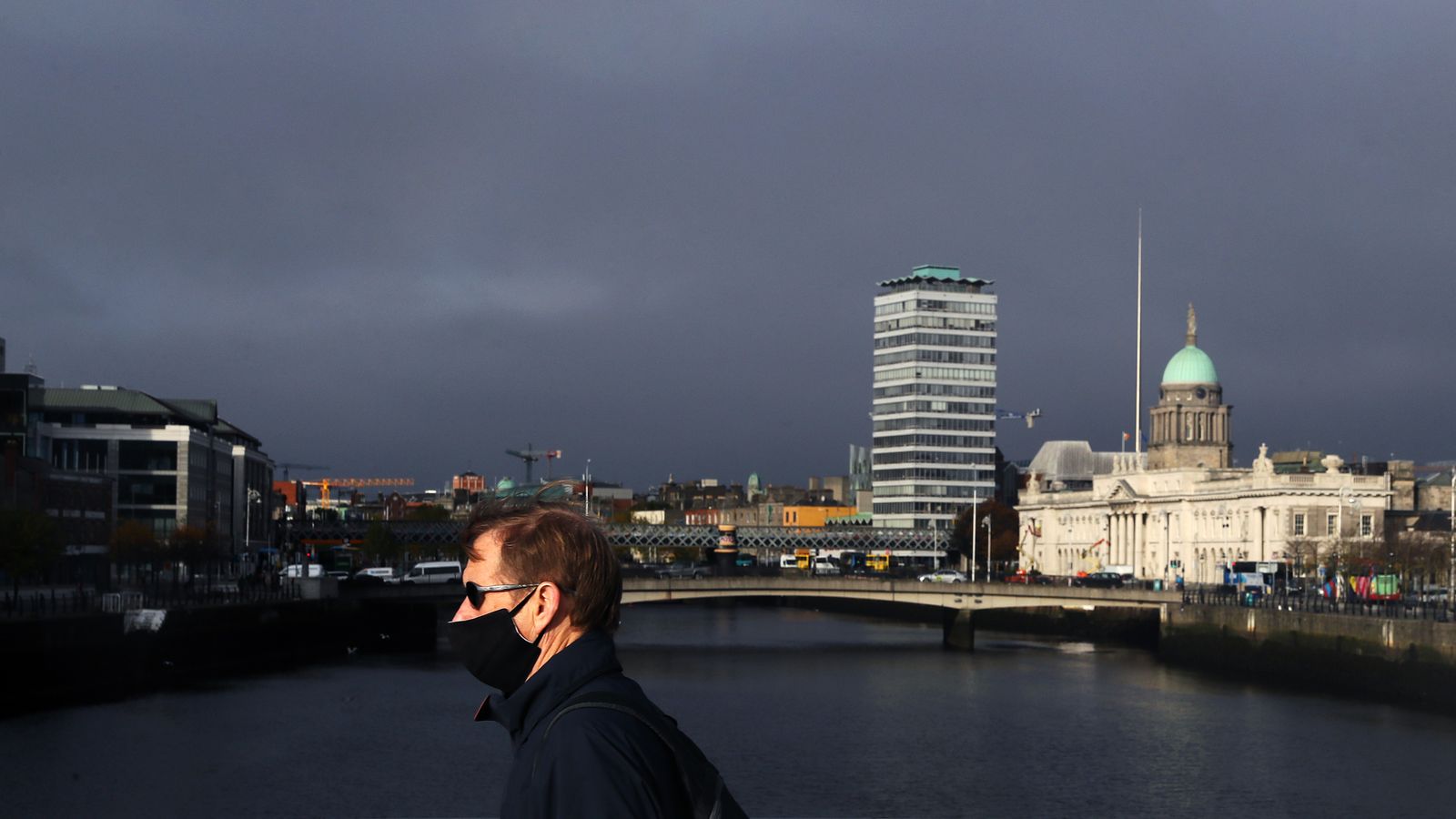Ireland will return to Level 5 restrictions for a least one month in an effort to limit the spread of the coronavirus, the prime minister Micheal Martin has said.
Addressing the nation, he described the situation as “extremely serious”, saying the new variant of the virus is “spreading at a rate that has surpassed the most pessimistic models available to us”.
He said: “The numbers will deteriorate further over the coming days.
“With the presence of the new strain and the pace of growth, this is not a time for nuance in our response. We must apply the brakes to movement and physical interaction across the country.”
The restrictions include:
- No visitors in private homes or gardens unless they are providing care to children or the elderly or vulnerable, or part of a support bubble
- No social or family gatherings in any setting, with an exemption for weddings with up to six guests and funerals with up to 10 mourners
- People should stay at home except for travel for work, education or other essential reasons, or for exercise within 5km (3.1 miles) of home
- Non-essential retail and gyms will close
The measures will come into effect at midnight tonight (Wednesday), except for non-essential retail and gyms, leisure centres and swimming pools, which will need to close from the end of business on 31 December.
The restrictions will remain in place until midnight on 31 January 2021.
Meanwhile, schools will reopen on 11 January, extending the Christmas break by three days.
The Irish government has also agreed that the ban on air travel and passenger travel on ferries from Great Britain will be extended to 6 January.
“As a similar new strain has been identified in South Africa, this ban will also apply to South Africa until 6 January,” a spokesman added.
Mr Martin said that Ireland had seen about 5% of tests coming back COVID-positive in the week before Christmas but on Tuesday this had rocketed to 18%.
More than 8,000 cases had been confirmed in the past seven days – a 61% increase on the previous week, he added.
“This latest surge is different to the second wave. We are seeing rising incidence of the disease across all age groups, especially those aged 19-24 and a very worrying increase among those aged 65 and older.
“During the second wave, there was a long delay between an increase in cases and an increase in hospital admissions.
“This time is very different.
“We are already seeing a sharp rise in the number of hospital admissions. This morning, there were 454 COVID patients in hospital. It has almost doubled in a week.”
Mr Martin warned the coming month would be “very tough for everyone” but that the end of restrictions was in sight.
“For the first time since this awful disease landed on our shores, we truly have an end in sight,” he said.
“Thousands of vaccines are landing here weekly and by the end of January I am confident that many tens of thousands of our most vulnerable citizens and our health care workers will have been vaccinated.”
Ireland’s Department of Health said on Wednesday evening that there had been a further 13 deaths related to COVID-19, making a total of 2,226 COVID-related deaths in the country since the pandemic started.
The number of confirmed cases increased by 1,718 to make a total of 90,157.
